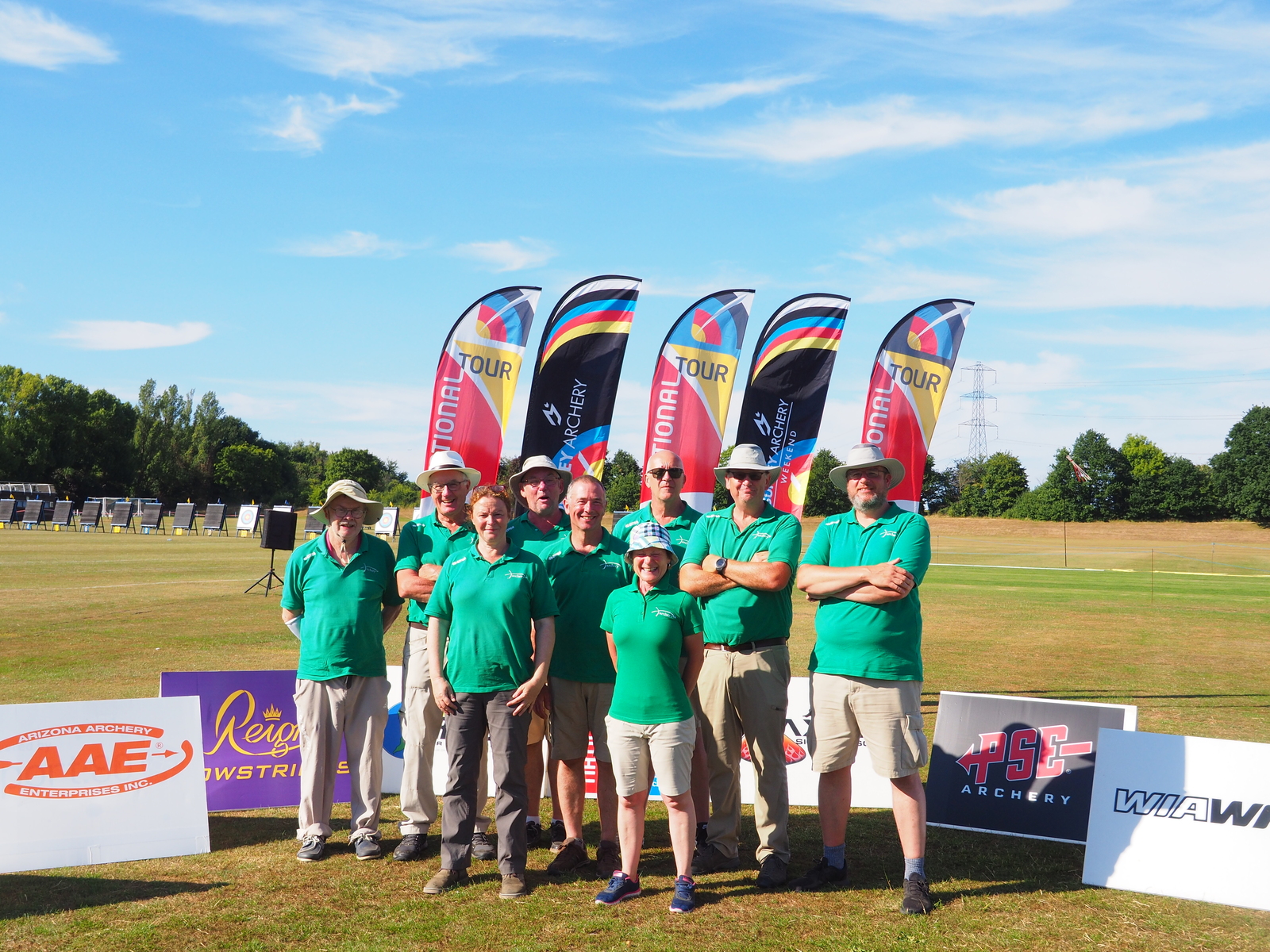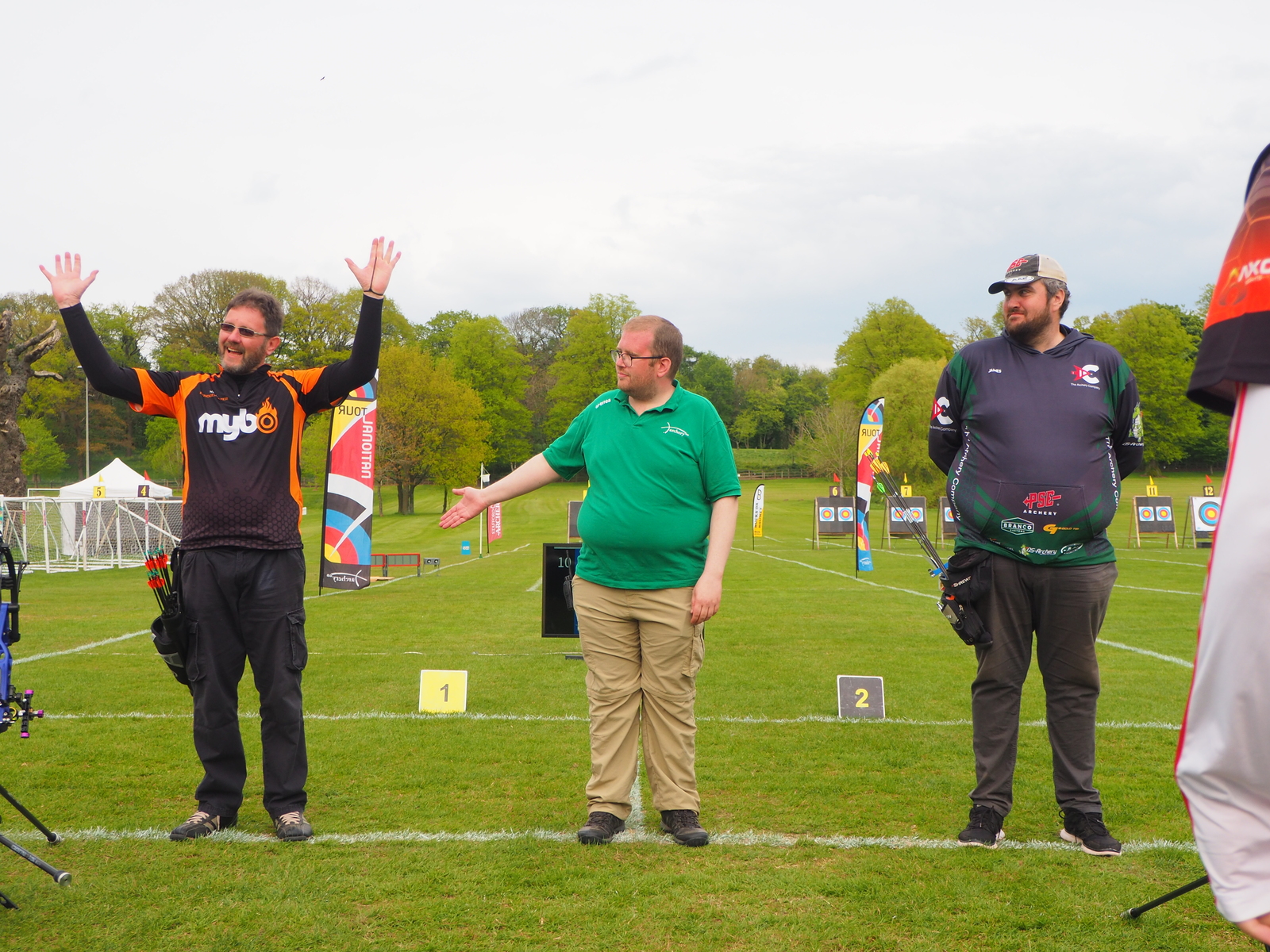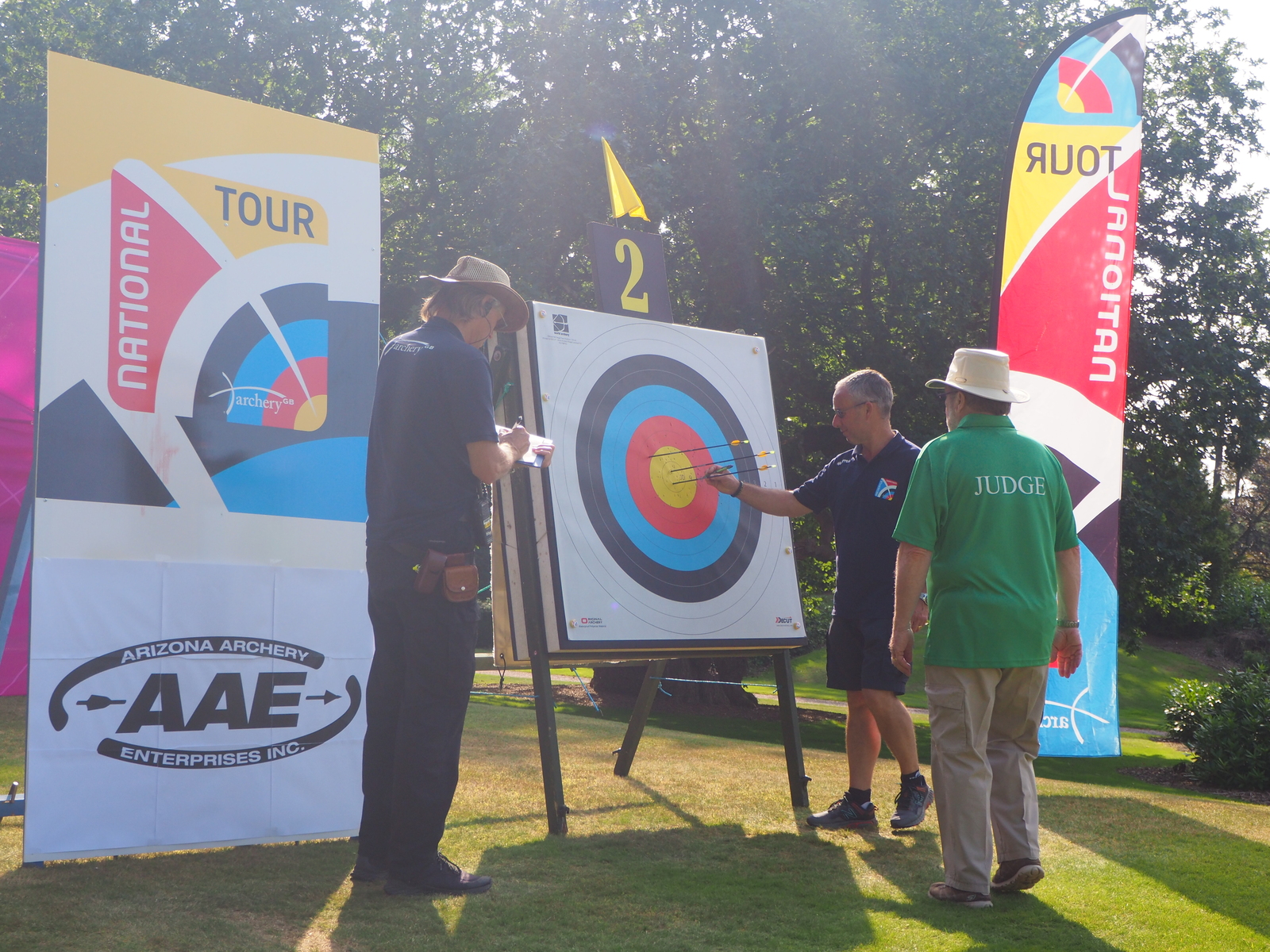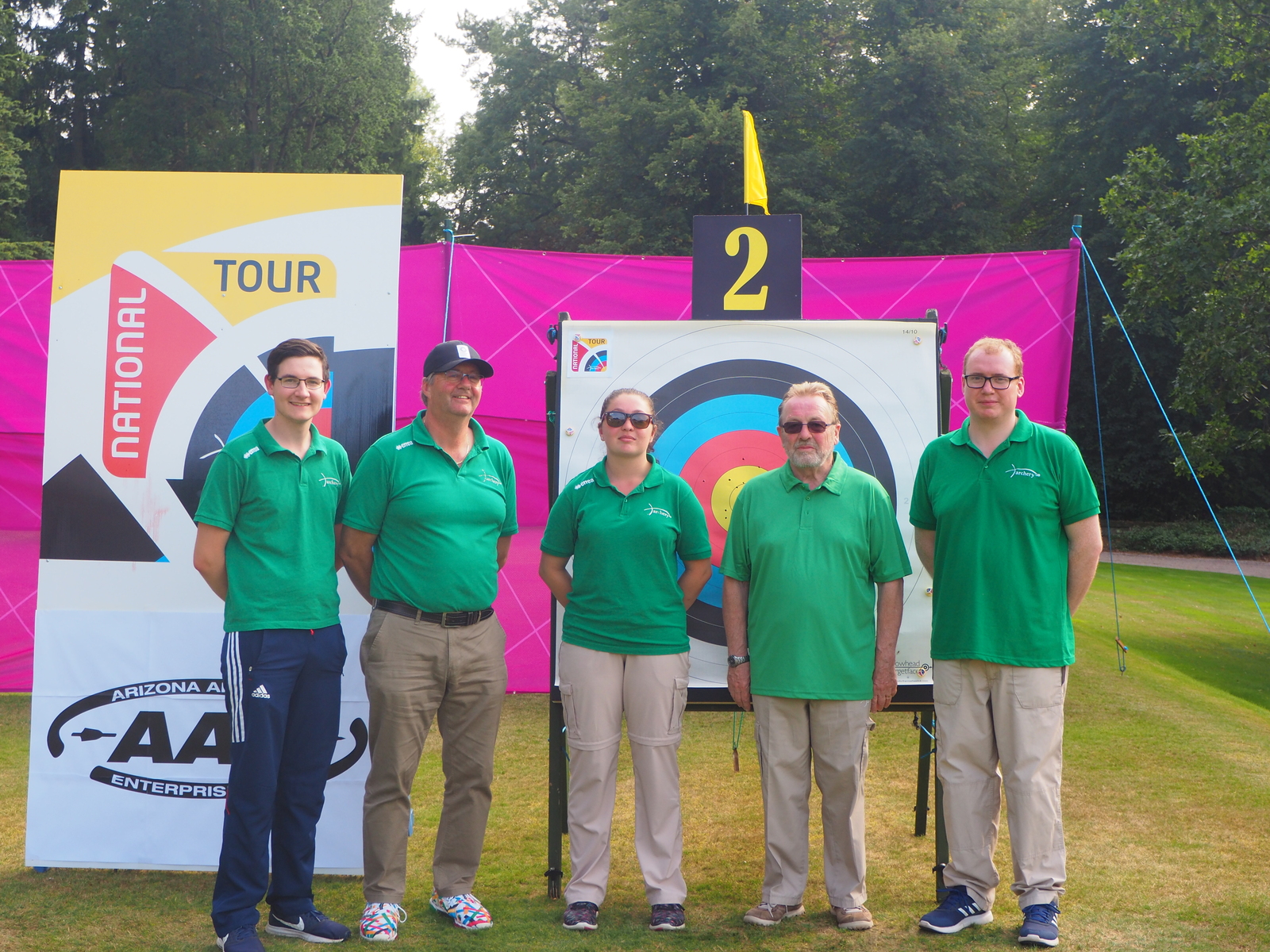Judging with Archery GB - Archery judging is a great way to give back to archery. Are you interested in helping make archery competitions happen? From informal club shoots to national tournaments, judging is a great way to be involved in the sport at a deeper level and help archers of all stages, abilities and ages perform their best.
Becoming an archery judge means you’ll learn new skills, build on your own confidence and encourage those taking part in our great sport, whether they’re beginners or performance athletes.
There are many reasons why you may want to get involved in officiating, for example:

Judging is a way of participating in, and gaining enjoyment from archery without shooting arrows. When you become an archery judge you’ll probably begin with small, local competitions, but who knows? One day you might be judging those Olympic and Paralympics archers!
As a judge, your role is to take scores in competitions, ensure that the rules are followed and that everyone plays fair! You’ll also be in charge of safety, and checking that the competitors’ equipment is in order.
Whenever shooting takes place, it needs to be under the control of a Field Captain. At larger meetings the Field Captain will also be a recognised Judge. The role of the Field Captain or Judge is to see that shooting takes place smoothly, so that each archer can achieve their best. This involves applying the rules fairly and in the spirit of sportsmanship.

A new judge will help to:
It’s important for all judges to provide a positive representation of the sport, in how they behave and conduct themselves, as well as the duties that they carry out.
Do:
Don’t:
The purpose of judging is to enable participants to train and compete in archery within the spirit and rules of the sport - it's your job to model these for everyone.
You’ll need to closely observe the competition, make judgments based on the rules and communicate them appropriately. It’s important that no matter the situation, you maintain your self-control. Regardless of the level of the tournament, there will always be difficult situations on the field of play. Officials acknowledge that they make mistakes and that there are close calls, and will try to correct any mistakes in order to maintain the concept of ‘protect the archer’s score’.

In the UK there are several tiers of judging starting at Candidate and reaching National level. Candidate and County Judges work as part of a larger team of judges that is headed by a Regional or National Judge. Each level is supported by a programme of training and improvement. World Archery also offers opportunities to officiate major events such as the Olympic and Paralympic Games, either as a Continental, International or International Youth Judge.
The International Youth Judge programme trains young people to officiate major events including the Youth Olympics, World Archery Youth Championships and World Archery University Championships.
The rapport that exists between officials and competitors is visible to everyone.
As an official of the sport, judges are an integral part of archery and their role extends far beyond implementing the rule book. Judges need to understand the needs of archers whether they are new to shooting or seeking maximum performance, and the provision of fair and unbiased officiating.
The rules provide the framework for a sport that is enjoyable and safe to participate in. There is an overriding obligation on the archers to observe the rules and to respect the principles of fair play, and officials can help achieve this by displaying fairness, consistency, sensitivity and, at the highest levels, management. Officials are also there to protect the archers score and ensure they are not unfairly penalised.
In return, it is the responsibility of archers, coaches and spectators to respect the authority of the officials.
Everyone has a responsibility to create the right environment to allow officials to perform as well as possible. To achieve this, the officiating and archery communities have to work with each other. Officials need to present a positive image of what they do by taking opportunities to be friendly, good humoured, approachable and by being seen to be enjoying their Role.
When archers, coaches and spectators appreciate the role of the official, it is more likely that the right environment will be created for the development of archery as a whole.

Archery GB is committed to creating a culture of equality in archery.
We encourage everyone who is involved in archery, from participants, volunteers, coaches and judges to parents and spectators, to:
As a judge, it’s your responsibility to take action against any discrimination or prejudice you see.
Developing a positive attitude to learning and self-improvement is at the heart of becoming a good official. As a judge you need to follow play closely, keep focussed, observe carefully and make quick and accurate decisions. It takes time to develop these skills, but with practice and learning from your experiences, you will continuously find ways to improve.